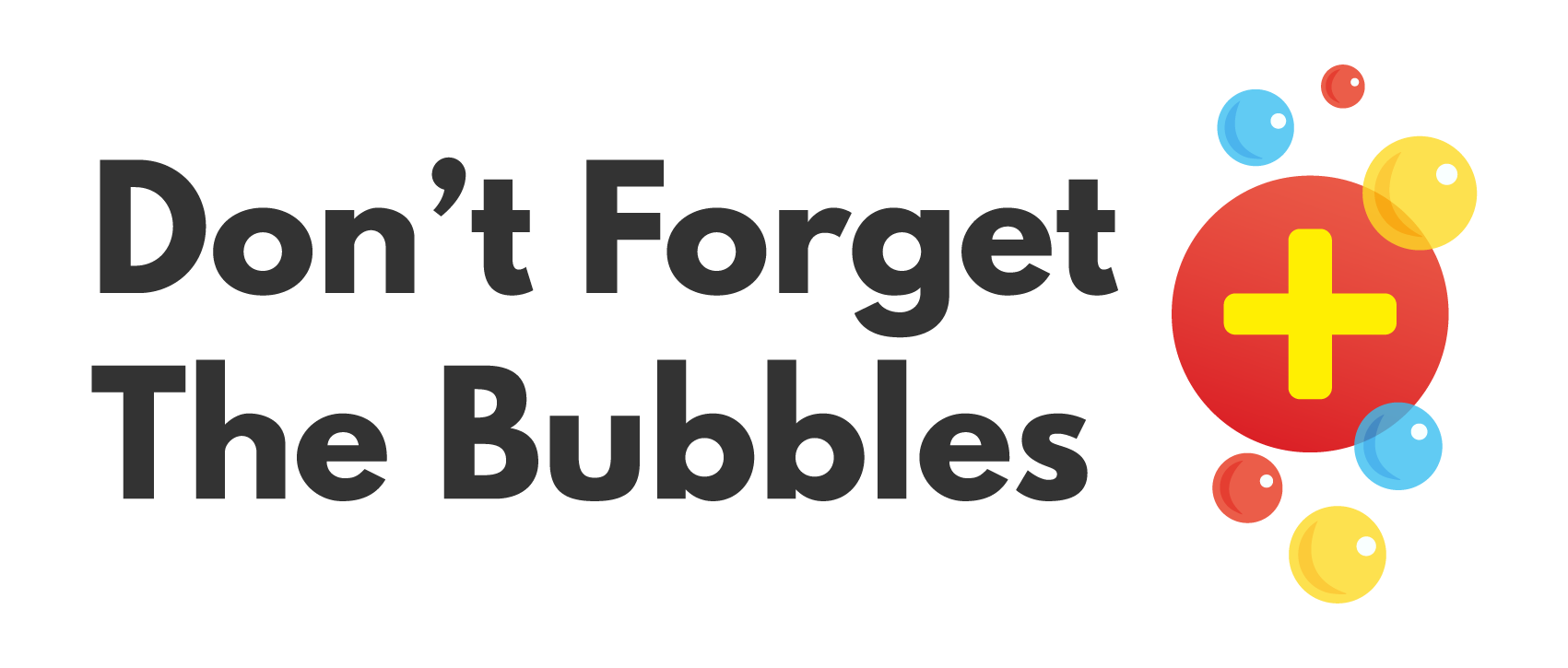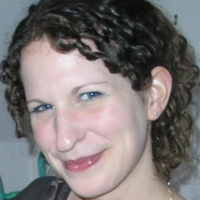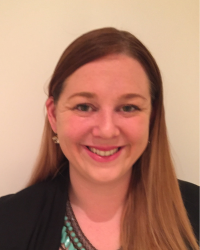Study options
- Starting in
- September 2025
- Location
- Distance Learning
- Fees
- Home: £4,300
Overseas: £9,200
EU/EEA/Swiss students
The course fee is charged per annum for 3 years. Note that fees may be subject to an increase on an annual basis - see details on our tuition fees page.
What you'll study
This course will provide practising doctors, nurses, paramedics and physician associates the opportunity to gain a thorough expertise in the field of PEM. It will be delivered online allowing access from anywhere in the world.
The PEM MSc at Queen Mary covers the breadth of PEM presentations, and you’ll be taught by world-leading experts recognised for their cutting-edge research and teaching. Together we will explore and deepen your understanding of a diverse range of topics such as congenital heart disease, seizures, bilious vomiting, trauma, and resuscitation, while fine-tuning your existing knowledge on research methodology, safeguarding, debriefs, and presentation skills. The MSc format will allow for online discussion around the clinical questions we face in our practice each day. You will fine-tune your skills of reading the evidence-base, assessing and summarising it, and conveying that to your peers through knowledge translation. You'll also learn skills in infographic creation, presentation delivery, and blogpost writing.

The course is delivered by Queen Mary in collaboration with global paediatric educational organisation Don't Forget The Bubbles (DFTB). You will learn from world-leading experts from Queen Mary University of London's Faculty of Medicine and Dentistry and Don’t Forget The Bubbles, recognised for their cutting-edge research and teaching. You will also have access to video and audio recordings of all lectures and other online resources including DFTB Essentials, Beyond Essentials, and other 2021 DFTB Digital courses, journals, books and databases.
Students* gave this programme a score of 94% for aspects of teaching and skills development, and 97% for assessment and feedback. Students* gave this course a 100% overall satisfaction rating.
*Students who completed the Postgraduate Taught Experience Survey (PTES) 2024
Structure
The format focuses on online forum discussion and interaction as a way of exploring the evidence-base and how it relates to your own practice.
This MSc is delivered over 3 years with 8 compulsory taught modules spaced over 2 years (4 per year), and a scientific paper and conference presentation for the 3rd year. Each 15-credit module consists of approximately 6 hours of livestream sessions and linked weekly discussion on the forum. Each module offers around 40 hours contact time and 110 hours self-directed study.
Modules
- Fundamentals of Research
- The Young Infant/Neonate and the Adolescent
- The Child with a Respiratory or Cardiovascular Problem
- The Child with a Neurological or Haematological Problem
- The Child with a Surgical or Gastro-Intestinal Problem
- The Child with a Dermatological, Endocrine, or Renal problem
- The Critically Ill Child
- The Child with Trauma
Year 3: Scientific paper and conference presenation
Assessment
We have some innovative assignments which help teach you skills that will be useful in your day-to-day work:
- Infographics – being able to convey complex information in a meaningful way to a target audience is a key skill for healthcare professionals. We teach you how to design, create, edit, and iterate infographics to achieve knowledge translation.
- Oral presentation – delivering a presentation to your audience with impact and keeping them engaged will help your teaching and your career progression. We give you skills to connect with your audience and plan a presentation that leaves your audience ready to take action.
- Blog posts – writing academic papers is core, but being able to write for a range of audiences and media ensures you can make meaning out of science that will have a direct impact on patient care. We equip you with the skills to write concisely, informally, and directly to your audience in a blog post.
Module 1 will be a short answer question worth 70% of the module mark; and MCQs worth 30% of the module mark.
For modules 2-8, you will be expected to participate in the forum. To demonstrate participation, you will be asked to present a portfolio of your participation at the end of the module.
Participation requirements:
- You will need to answer 8 questions from the 20 questions offered during the 8-week module (these will be offered in 2 groups of 10 in Weeks 1-4 and another 10 in Weeks 5-8). These are in the form of a 300-400 word answer to be posted on the discussion forum.
- You will be expected to comment on the other 12 threads
The course faculty will support and moderate the forums.
There will be 2 types of summative assessment as part of this for Modules 2-8.
- A mid-module assignment. This will be either the creation of an infographic or writing a blog post (both with the aim of knowledge translation). This will be worth 20% of the module mark.
- An assignment that will be either a 1500 word essay, a short answer assignment, critical appraisal, or a 10 minute oral presentation. This will be worth 80% of the module mark.
The summative assessment for Modules 1-8 will be marked as 0-100% with a passmark of 50%.
Year 3 is a scientific paper as described below.
Compulsory/Core modules
In this module you will be taught basic skills required for academic medicine, including how to read a paper, how to critically appraise medical literature, how medical research is designed, statistical analysis, and research methodology. You will gain experience in searching the medical literature to answer specific questions, be introduced to a variety of literature databases and develop the necessary skills to evaluate the scientific literature. With the emphasis on personal research, you gain awareness of current legislation and ethics surrounding clinical research. The module will conclude with you being shown how to submit your work for publication and present your research for differing audiences. Your learning will be supported by a series of online lectures and discussion groups.
This module will allow students to develop specialist knowledge and insight on a topic of their choice, related to Emergency and Resuscitation Medicine. Students may choose to organise their scientific paper in the form of a systematic review (with meta-analysis), narrative review, retrospective (medical-records) review, or prospective (low-risk) cohort study (e.g. education study). Students will develop the ability to synthesis and analyse information and data, to break down complex issues and to compare and contrast alternative viewpoints. Particular emphasis will be placed on developing the students' ability to disseminate knowledge at a professional level, with a view towards publication.
This module will provide students with an understanding of specific issues relevant to neonatal and adolescent presentations. Students will learn about a range of topics including: the normal baby, neonatal seizures, congenital heart disease, metabolic conditions; and in adolescents - self-harm, pseudoseizures, vaginal bleeding, sexually transmitted diseases, and anxiety + depression. Please note, this module does not seek to provide students with clinical training in paediatric emergency medicine, but rather to provide an understanding of specific issues relevant to neonatal and adolescent presentations.
This module will provide students with an understanding of specific issues relevant to paediatric respiratory and cardiovascular presentations to the emergency department. During this module students will learn about common respiratory such as asthma, bronchiolitis and croup, before moving on to cardiac presentations including heart murmurs, arrhythmias, hypertension, and chest pain. Please note, this module does not seek to provide students with clinical training in paediatric emergency medicine, but rather to provide an understanding of specific issues relevant to neonatal and adolescent presentations.
Although less common, neurological and haematological presentations in children can present a diagnostic and managerial challenge in the ED. In the first part of this module students will cover common neurological presentations including headache, seizures, ataxia, neuromuscular disorders, and stroke. In the second part the focus will be on haematological presentations including neutropenia, ITP, pancytopenia, and tumour lysis syndrome. Please note, this module does not seek to provide students with clinical training in paediatric emergency medicine, but rather to provide an understanding of specific issues relevant to neonatal and adolescent presentations.
Abdominal pain in children is another common ED presentation. This module will help students differentiate from acute abdominal emergencies, benign presentations and chronic illnesses. In the first part of the module students will cover common surgical presentations including urethral abnormalities, bilious vomiting, common oral and dental injuries, eye emergencies, and intussusception. In the second part the focus will be on gastrointestinal presentations including inflammatory bowel disease, constipation, rectal bleeding, and pancreatitis. Please note, this module does not seek to provide students with clinical training in paediatric emergency medicine, but rather to provide an understanding of specific issues relevant to neonatal and adolescent presentations.
This module covers the initial resuscitative management of the critically ill child. This will include managing the difficult airways, anaphylaxis, DKA, sepsis and shock, as well as the less commonly but also life-threatening presentations of PIMS-TS, hypothermia and adrenal crises,. The module will also include learning and discussion around transfer, debrief, conflict management, safeguarding, and resus outcomes. Please note, this module does not seek to provide students with clinical training in paediatric emergency medicine, but rather to provide an understanding of specific issues relevant to the critically ill child.
This module will provide students with an understanding of specific issues relevant to paediatric trauma presentations. Students will learn about a range of topics including: leading the trauma team, trauma imaging, primary and secondary survey, spinal injuries, chest and pelvis trauma, head injuries. The second part will cover facial injuries, procedural sedation, joint dislocations, wound management, and limb injuries. Please note, this module does not seek to provide students with clinical training in paediatric emergency medicine, but rather to provide an understanding of specific issues relevant to neonatal and adolescent presentations.
This module covers common dermatological and renal presentations to ED. Paediatric rashes range from the mild/benign to the life-threatening. In the first part of the module students will cover common dermatological presentations, including non-blanching rashes, viral exanthems, vasculitis, and eczema, exploring the recognition of rashes on different skin tones. In the second part the focus will be on renal presentations including urinary tract infections, nephrotic syndrome, haemolytic-uraemic syndrome, renal vein thrombosis, and glomerulonephritis. Please note, this module does not seek to provide students with clinical training in paediatric emergency medicine, but rather to provide an understanding of specific issues relevant to neonatal and adolescent presentations.
Assessment
Module 1 (Year 1)
- Short answer question (70%) and MCQs (30%)
Modules 2-4 (Year 1) and 5-8 (Year 2)
For each module:
- Answer 8 forum questions out of 20
- Comments on the other 12 threads
- Complete a mid-module assignment (20%) and final assignment 80%
Year 3
Complete a scientific paper
Research project
Scientific paper
This module will form the final year of the part-time programme and provide you the ability to draw upon your learning from years 1 and 2, and consolidate this. The year will contain lectures and tutorials in scientific writing, critical appraisal, statistics, research and presentation preparation supplemented by dedicated monthly Q&A tutorials. In Semester 1, you will identify a topic, be assigned a dedicated supervisor and produce a 1,500-word project proposal. In Semesters 2 & 3, you will produce a 3,500-word scientific paper with 2,000 words of supplementary material (detailing methodology, statistical plan, secondary outcomes, literature appraisal) and a 20-minute (conference-standard) oral presentation. At each stage your assigned supervisor will support and guide you with regular meetings during the 9-month module.
—Being part of this group has been a joy, and all members of this incredible faculty have made it the best experience possible! Joining this programme is one of the best decisions I've ever made.
Shenelle Soyer, Paediatric Emergency Medicine, 2022
Teaching
This course has been developed and is taught by practising professionals and industry experts. In addition to specially developed and tailored online learning content, you will develop skills in digital communication, knowledge translation, and evidence-analysis through the online forum discussions.
Each 15-credit module consists of approximately 6 hours of livestream sessions and linked weekly discussion on the forum. Each module offers around 40 hours contact time and 110 hours self-directed study.
You’ll take an active role in your own learning by reading designated material, producing written assignments and completing projects.
Blizard Institute distance learning (online) students* gave their experience a score of 99% for overall satisfaction.
*Students who completed the Postgraduate Taught Experience Survey (PTES) 2024
Where you'll learn
Facilities
- Access to Queen Mary’s dedicated online portal, QMplus
- Video and audio recordings of all lectures and other online resources (DFTB Essentials, Beyond Essentials, and other 2021 DFTB Digital courses, journals, books and databases)
- Supplementary reading and a selection of relevant journal articles
- Student Café — this is where the core discussion will happen including the weekly forum questions and threads
- Watch our video to discover online study at Queen Mary
Campus
Online
About the Institute
Blizard Institute
The Blizard Institute is the largest institute of the Faculty of Medicine and Dentistry. Our research and education span broad areas of modern biomedicine, with particular expertise in cell biology, genomics, immunology, neuroscience, primary care, population health and trauma sciences.
Our research puts Queen Mary joint seventh in the UK (REF 2021). We work closely with linked NHS hospital trusts which means that the School’s research and teaching is informed by an exceptionally wide-ranging and stimulating clinical environment.
Barts Health NHS Trust is home to:
- One of the capital's leading trauma and emergency care centres in the UK (approaching 1,000 attendances daily)
- Europe’s largest Trauma Centre
- Europe’s busiest Heart Centre.
Queen Mary University is also part of the prestigious Russell Group - a body of leading UK universities dedicated to research and teaching excellence.
Career paths
The part-time nature of this course allows you to apply your knowledge directly to your practice as a doctor, nurse, paramedic or physician associate.
Most of our graduates are working in a range of medical and biomedical roles in hospitals and NHS Trusts, universities and within the wider healthcare sectors, whilst a number are undertaking further study or research.*
*2019/20 Graduate Outcomes Survey (all postgraduate taught graduates)
- 96% of Blizard Institute postgraduate-taught graduates are in employment or further study (2020/21)
- 98% of Blizard Institute postgraduate-taught graduates are in highly skilled work or graduate study (2020/21)
- £47k is the median UK salary of Blizard Institute postgraduate-taught graduates (2020/21). 87% earn above this.
—Studying on the Queen Mary PEM MSc has been one of the best decisions of my career. The format of an online forum supported by weekly [recorded] tutorials has allowed me to find time to enjoy studying alongside what is already a busy work schedule. This has given me the privilege of learning with colleagues from all over the world and from the faculty from QMUL and DFTB who are inspirational pioneers in medical education. The modules cover a wide range of topics in Paediatric Emergency Medicine and allow detailed exploration of key presentations. There is also a focus on critical appraisal and knowledge translation, which helps to build skills in both formal and informal academic writing, and multi-media presentation. I genuinely feel that the reading, writing, and reflection undertaken throughout this course will be help me in delivering compassionate and evidence-based care to children and their families, and in knowing how to share such approaches with the wider medical community.
Owen Hibberd, MSc Paediatric Emergency Medicine
Fees and funding
Part-time study
September 2025 | 3 years
- Home: £4,300
- Overseas: £9,200
EU/EEA/Swiss students
The course fee is charged per annum for 3 years. Note that fees may be subject to an increase on an annual basis - see details on our tuition fees page.
Queen Mary alumni can get a £1000, 10% or 20% discount on their fees depending on the programme of study. Find out more about the Alumni Loyalty Award
Funding
There are a number of ways you can fund your postgraduate degree.
- Scholarships and bursaries
- Postgraduate loans (UK students)
- Country-specific scholarships for international students
Our Advice and Counselling service offers specialist support on financial issues, which you can access as soon as you apply for a place at Queen Mary. Before you apply, you can access our funding guides and advice on managing your money:
Entry requirements
UK
Degree requirements
Additional information
For Doctors:
- A medical degree
- One year of post-registration clinical training in emergency medicine/paediatrics/anaesthetics/pre-hospital care. (Intern/house officer/FY1 pre-registration experience is not counted). Other cases will be considered based on their personal statement.
For Nurses:
- An undergraduate degree at 2:2 or above. Applicants with academic study below this level will be considered on an individual basis if there is very strong evidence of suitable clinical experience in a relevant medical field.
- 2 years’ experience in paediatric, emergency, or critical care nursing.
For Paramedics:
- A degree in paramedic science at 2:2 or above. Applicants with academic study below this level will be considered on an individual basis if there is very strong evidence of suitable clinical experience in a relevant medical field.
- Applicants with a degree that did not involve clinical work should have 3 years’ experience working as a paramedic OR 1 year experience plus at least 12 months experience working as a critical care paramedic or in a dedicated HEMS system. Those with a degree that involved clinical work are eligible without further years of clinical experience.
For Physician's Assistants/Associates:
- A degree in this area at 2:2 or above. Applicants with academic study below this level will be considered on an individual basis if there is very strong evidence of suitable clinical experience in a relevant medical field.
- 2 years of paediatric/emergency medicine experience
Find out more about how to apply for our postgraduate taught courses.
International
English language requirements
The English language requirements for our programmes are indicated by English bands, and therefore the specific test and score acceptable is based on the band assigned to the academic department within which your chosen course of study is administered. Note that for some academic departments there are programmes with non-standard English language requirements.
The English Language requirements for entry to postgraduate taught and research programmes in the Blizard Institute falls within the following English band:
Band 4: IELTS (Academic) minimum score 6.5 overall with 6.0 in each of Writing, Listening, Reading and Speaking
Please note, there are some postgraduate programmes with non-standard English language requirements in this Institute.
We accept a range of English tests and qualifications categorised in our English bands for you to demonstrate your level of English Language proficiency. See all accepted English tests that we deem equivalent to these IELTS scores.
Visas and immigration
Find out how to apply for a student visa.





